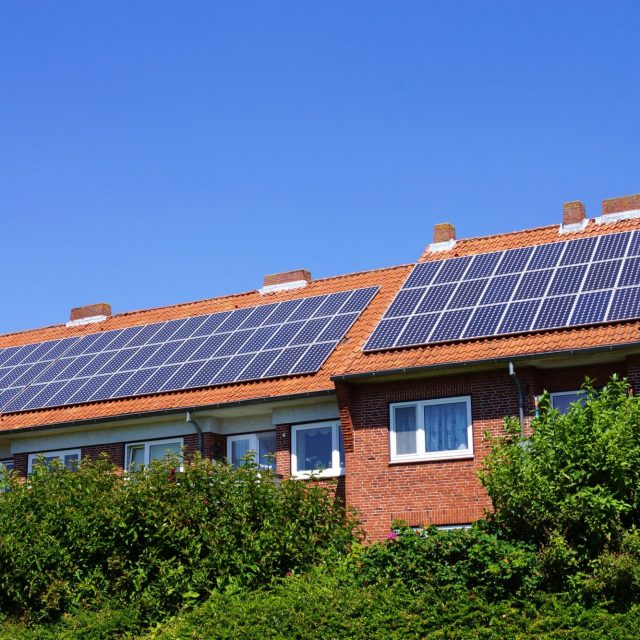Future economic policy must be in line with the European Green Deal, says the European Economic and Social Committee (EESC).
The Committee urges EU Member States to make sustainable economic growth the top priority for European and national economic policies in 2020 and beyond and recommends complementing the current accommodative monetary policy of the European Central Bank (ECB) with a cautiously expansive fiscal policy at euro area level.
In the EESC’s view, the Green Deal represents not only a major shift for EU economies, but also an opportunity to enhance economic prosperity and convergence within the euro area and the EU as a whole. The Green Deal should become the backbone of future EU and euro area economic policy and lead to a new economic paradigm. The economic priorities for 2020 should therefore be aligned with it.
At today’s plenary session the Committee adopted its opinions on the European Commission’s Annual Sustainable Growth Strategy 2020 (ECO/502) and on the recommendation for the economic policy of the Euro area (ECO/503). The opinions deliver the perspective and contribution of Europe’s organised civil society to the ongoing debate on the economic priorities for the year ahead and beyond in the framework of the European Semester. The priorities were discussed by the Economic and Financial Affairs Council on 18/02/2020 and will be formally adopted at the upcoming European Summit in March 2020.

Speaking at the EESC plenary, Tommaso Di Fazio, rapporteur for the opinion on the Annual Sustainable Growth Strategy 2020, said, “If Member States are to support the Commission’s strategy, they have to give utmost priority to the restoration of sustainable economic growth with a significant increase in European GDP.”
In the opinion, the Committee further welcomes the approach taken in the annual growth strategy, the inclusion of the United Nation’s Sustainable Development Goals, the stronger focus on long-term objectives and the indications for investment. The EESC also appreciates the fact that social rights are highlighted and calls for special attention to be given to the gender issue, particularly concerning women’s rights at work, the achievement of pay parity and employment protection for mothers – not least to counter the negative demographic trend.
“We agree with the Commission that our strategy for growth should build on four key pillars: environmental sustainability, productivity, stability and fairness and that in particular environmental sustainability should be a compass point in policy-making”, explained Mr Di Fazio.
The Committee is fully aware that achieving the European Green Deal and sustainable growth will require reforms and investment. It believes however that the funding proposed for the Just Transition Fund and Mechanism will not be sufficient. To close the current investment gap, the EESC proposes that the financial resources for these tools be increased and calls for additional measures to ease and enhance private and public funding.
“There is a continuing need for a cautiously aggressive fiscal policy in the period to come, especially with a view to the expected economic slowdown”, said Petr Zahradník, rapporteur for the opinion on the Euro area economic policy 2020. At the same time, we need to ensure a balanced interplay between economic policy and the different pillars of Economic and Monetary Union. In particular, improved fiscal discipline over the last few years makes room now not only for investment, but also for further implementation of the necessary structural policy measures, with a view to increasing economic potential and reducing the persistent macroeconomic and social imbalances between and within Member States.
Mr. Zahradník also pointed out the importance of ensuring financial market stability in the coming period by implementing the remaining key elements for completion of the Banking Union and Capital Markets Union. The stability of the financial system is crucial for securing the confidence and trust of investors and markets in EU economies and therefore for ensuring the growth of businesses and investment.
The EESC hopes that further measures governing investment will be studied and adopted and that these will enable all countries to invest the amounts needed to meet their energy and climate objectives on the way to a climate-neutral EU economy. As investments are crucial for efficiently addressing the societal challenges at hand and for transforming them into opportunities for future prosperity and wellbeing, the EESC suggests in its opinions that the “golden rule” for public investment be adopted.
Moreover, the Committee recommends tailoring a tax system fit for future needs. Taxation should encourage more environmentally friendly behaviour, limit discrepancies in levels of income and wealth and prevent tax fraud, evasion and avoidance, according to the EESC.
For achieving sustainable growth, the Committee likewise recommends improving the operation of the single market, for example by prioritising within the European Semester the creation of conditions for fair competition and a quality business environment.
Lastly, the EESC opinions point to the importance for the success of the Commission’s strategy of involving the local economy and civil society in designing and implementing fair measures.




